Why have one in four fled their homes in CAR?
- Published
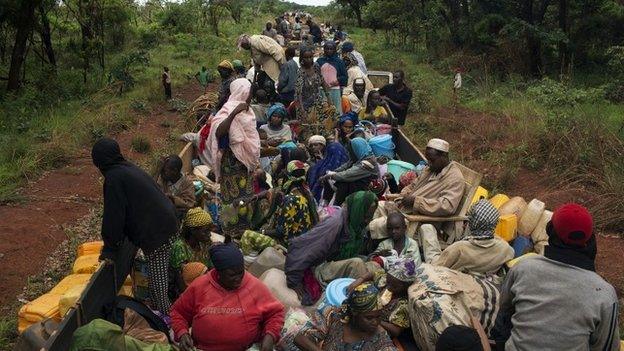
The Central African Republic has been in turmoil since rebels seized power in March 2013. The UN has warned that the country is heading toward a humanitarian disaster.
What is life like in CAR?
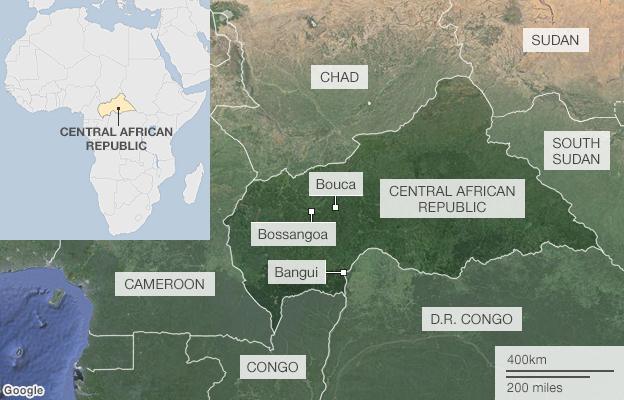
Most people are terrified as lawlessness has overtaken the country, which is bigger than Spain and Portugal combined. Armed men from rival groups trawl many areas looting, killing, burning crops and homes. Many villages are empty, with people either hiding in fields or in the bush. Around a quarter of the population of 4.6 million have fled their homes.
At least 2.2 million are finding it difficult to feed themselves and almost half of those living in the capital, Bangui, have fled since December, many to a makeshift camp at the airport.

Why is it so bad?
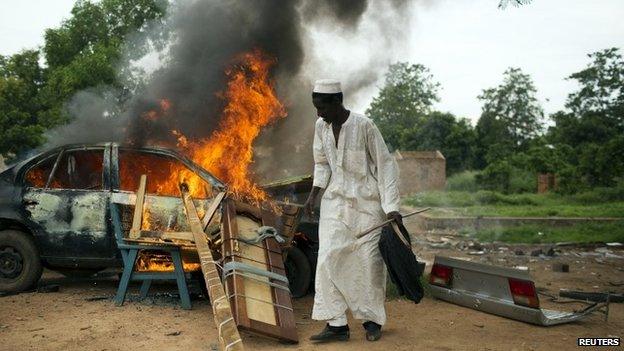
Lack of security means that the UN and other agencies are unable to help those in remote areas; schools and hospitals have been looted by the former rebel coalition, Seleka, that took power. About 70% of children are no longer going to school, and some are being recruited as soldiers.
A small regional peacekeeping force was unable to stop the rebel takeover and subsequent chaos. Rebel leader Michel Djotodia became the first Muslim leader in the mainly Christian country. Although he officially disbanded Seleka, its fighters continued to launch attacks, prompting the emergence of local Christian civilian protection groups known as "anti-balakas". Fuelled by ethnic rivalries, the conflict has also now become sectarian in nature, with militias targeting Muslim civilians.

Could it get worse?
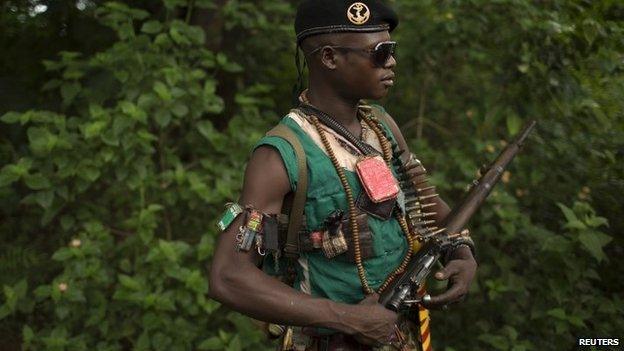
Yes. Some observers have warned it is not an exaggeration to say it could turn into a sectarian genocide. Most Muslims have now fled the capital, Bangui, following attacks by Christians militias, and neighbouring Muslim states have evacuated their citizens. Some fear the country could be divided into a Muslim north and a Christian south, but religious leaders from both sides have been working hard to promote unity.
Added to the mix, the Ugandan rebel movement, the Lord's Resistance Army, is based in the country.

Who are the rebels?
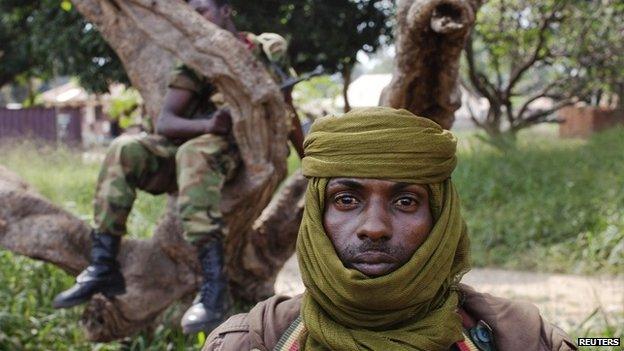
"Seleka" means alliance - they are a mixture of different groups, mostly from the mainly Muslim north, where people have long complained of being neglected by various Christian-dominated governments that have ruled the former French colony since independence in 1960.
Mr Djotodia used to be CAR's envoy in the neighbouring Sudanese region of Darfur, where he is believed to have recruited fighters from the Janjaweed militias accused of atrocities, as well as mercenaries from Chad. He has been fighting Mr Bozize for many years. They signed a peace deal in 2007 but Mr Djotodia accused the ousted president of not respecting it and launched a new rebellion. He was forced to step down as president in January but the violence has continued.

Why does it matter?
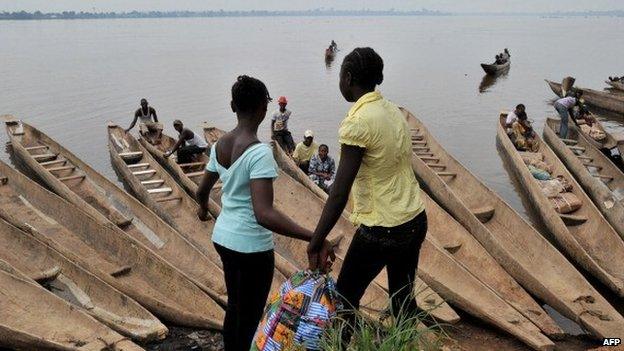
Apart from the appalling humanitarian situation, some officials fear the Seleka rebels have a radical Islamist agenda after studying in the Middle East. The country is also rich in virgin forests and minerals - and corruption in the diamond and timber trade has already fuelled much of the country's instability, while its people remain among the poorest in the world.

Has CAR ever been stable?
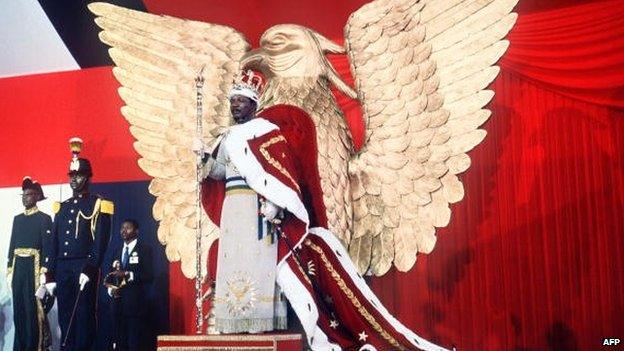
No. Since independence from France in 1960 there have been eight coups. Its most notorious leader was Jean-Bedel Bokassa, who crowned himself emperor at a coronation where he wore a costume inspired by Napoleon and rode in a carriage flanked by soldiers dressed as 19th Century French cavalrymen. He was variously accused of being a cannibal and feeding opponents to lions and crocodiles in his personal zoo.
Jean-Pierre Bemba, a rebel leader turned politician from neighbouring Democratic Republic of Congo, is also on trial at The Hague for alleged war crimes committed a decade ago when his fighters came to help put down a coup by Francois Bozize, who was himself ousted by Seleka in March.

What is being done?
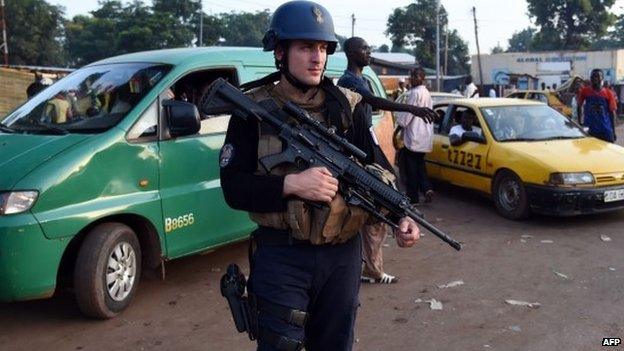
The UN plans to send a 12,000-strong force later this year. For now, the African Union is in charge of the peacekeeping operation, with around 5,000 soldiers on the ground.
France, with UN approval, has also deployed about 2,000 troops to try to end the violence, but they have been unable to quell the bloodshed, with more than 1,000 killed in clashes since December.

Why hasn't this stopped the violence?
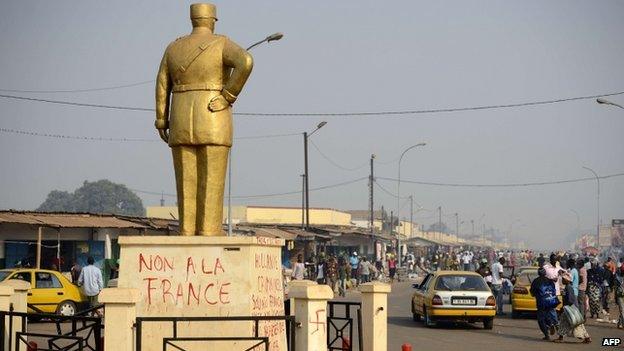
CAR's army has collapsed and it is hard for the peacekeepers to provide security throughout the vast and under-developed country. As regional peacekeepers have arrived in towns, armed gangs have left to prioritise remote areas elsewhere.
The peacekeepers have also added to the tension with some Muslims suspecting French troops of siding with Christians, while Chad withdrew its contingent from the AU force after it was accused of carrying out an attack in Bangui and backing the Muslim rebels - a charge it denied.